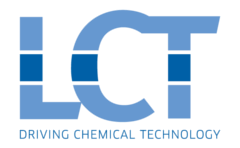CFD-DEM supported design of an integrated Magnetic Field Assisted Fluidized Bed Reactor
Aim
The aim of this project is to develop and optimize an integrated fluidized bed reactor with magnetic assistance for intensified CO2 capture and conversion. The reaction of interest is Chemical Looping Super-Dry Reforming (CL-SDR), converting methane and CO2 into syngas1. Through the use of materials with different functionalities and magnetic properties, magnetically-driven spatial organization of particles in a multicomponent fluidized bed is targeted, leading to process intensification. To optimize the design and operation of the magnetic field assisted fluidized bed reactor (MAFB) (reactor scale), its hydrodynamics will be modelled, with inclusion of reaction kinetics (molecular scale). Experimental data obtained by fellow researchers testing the experimental setup in-situ will support the modelling results.
Context
Vast amounts of energy are needed to synthesize megatons of chemicals used in everyday life. To meet that demand, the chemical industry uses energy from fuel combustion, thereby producing one seventh of the anthropogenic greenhouse gas emissions. A more sustainable production could be provided by Chemical Looping (CL), an emerging technology to produce heat, fuels, chemicals and electricity, with extremely low emissions. A main characteristic of CL is the ability to run chemical reactions with in-situ product separation. As separation is an energy-intensive step, CL offers important energy savings next to emission reduction. The CL efficiency can be increased by combining different functionalities in one reactor bed, e.g. a catalyst for reagent pre-treatment and an oxygen carrier. Clever organization of these functional solids, as a mixture or in distinct reactor zones, can further improve the overall performance.
Program
We are looking for a computationally oriented PhD student with chemical engineering degree to join the MACBED team. She/he will perform Computational Fluid Dynamics - Discrete Element Method (CFD-DEM) simulation of the fluidized bed using Fluent or OPENFOAM software. DEM describes the motion of individual particles by considering the forces acting on a single particle. As a novel approach, the latter will be extended, first with magnetic forces and later with cohesive forces for Geldart A particles. The effect of cohesive and magnetic forces on a particle can be plugged into the modelling via in-house codes, added to the DEM frame. The quartz reactor to be built (1x4cm², 30cm high) and particles to be used define the domain size and particle loading of the reactor. Extensive simulation time will be needed, for which the High Performance Computing (HPC) infrastructure of UGent can be used. Magnetic and cohesive ‘cold flow’ data will allow for experimental validation. Eventually, kinetics will be included and validated with ‘hot flow’ data. Once the extended CFD-DEM model is built, a fluidized bed optimization will be performed. The latter implies selecting the magnetic and cohesive forces model to correctly describe the particles’ hydrodynamics. Next to bed stabilization, particle demixing/mixing and break-up will be studied, as these can enhance the performance of the functional materials in the MAFB under reaction conditions, leading to higher CL-SDR yield.
Having interest in a computationally oriented PhD as chemical engineer in collaboration with experimentalists? For more information on this topic, please contact: Prof. G. Heynderickx (Geraldine.heynderickx@UGent.be)
